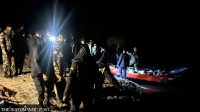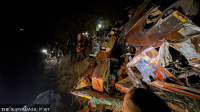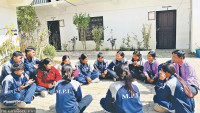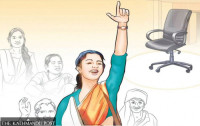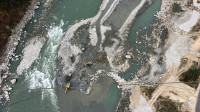National
Activists press for workers’ occupational safety and health
Globally, Occupational Safety and Health (OSH)-related deaths totals to 2.7 million workers every year, according to the latest data with the International Labour Organisation (ILO). Similarly, some 317 million workers suffer from work-related injuries annually.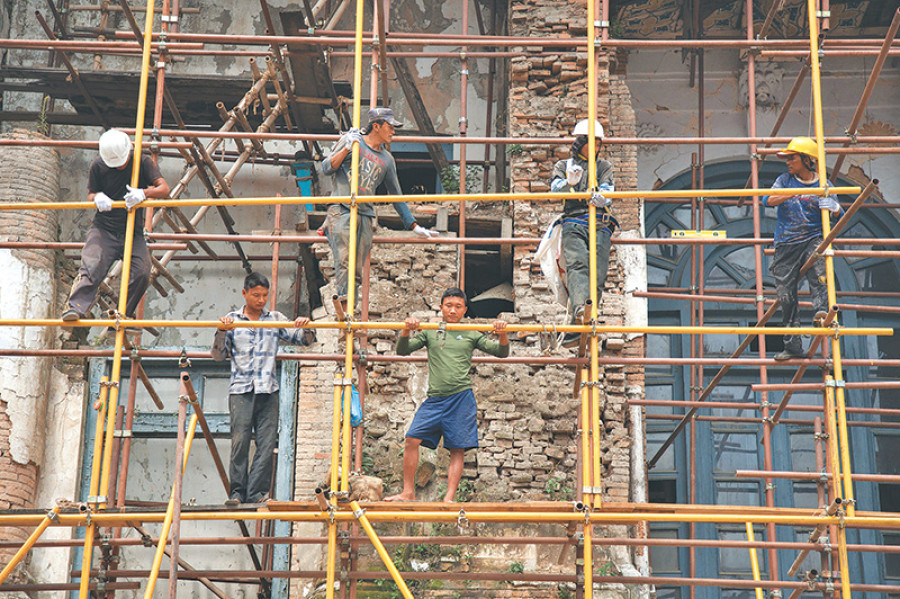
Globally, Occupational Safety and Health (OSH)-related deaths totals to 2.7 million workers every year, according to the latest data with the International Labour Organisation (ILO). Similarly, some 317 million workers suffer from work-related injuries annually.
Such accidents, deaths and injuries at the workplace are roughly estimated to be around 4 per cent of the total GDP of the world. There is, however, no data available for South Asia, where experts believe the OHS-related deaths and injuries could be higher than that in other regions.
In a bid to address OSH-related issues and ensure safety of millions of workers, an Asia-level conference on OSH rights of workers kicked off in Kathmandu on Wednesday.
The conference organised by the Asian Network for the Rights of Occupational and Environmental Victims (ANROEV), a coalition of victims’ groups, trade unions and other labour groups across Asia, has brought together 54 delegates from Nepal and 67 international delegates from 17 Asian countries.
During the inaugural session on Wednesday, delegates pressed for ensuring rights of victims and overall improvement of health and safety at the workplace in the region.
Inaugurating the conference, Devraj Dhakal, director general of the Department of Labour, said Nepal is committed to ensuring safe and healthy environment for the workers.
Commenting on the OSH situation in Nepal, General Federation of Nepalese Trade Unions (GeFONT) President Bishnu Rimal said though the country has been working to promote safer workplace, the situation has been far satisfactory.
“We can see everywhere… people are working without minimum safety gears and working in direct exposure of hazardous chemicals,” said Rimal, adding, “There is very low awareness about occupational safety and health among workers and employers.”
Rimal said that country needs to do a lot to improve the situation in Nepal. The recently endorsed Labour Act has provision of a mandatory safety committee and a safety inspector for employee organisations with more than 25 workers.
Nepali workers are also facing several toxic hazards, said Ram Charitra Sah, executive director of the Centre for Public Health and Environmental Development (CEPHED), a partner of the event.
“Nepali labourers are operating in environment surrounded by toxic chemicals and are often exposed to elevated levels of these chemicals,” said Sah, adding, “Our country also needs to talk about our migrant workers in Gulf countries. Our economy is based on remittance at the cost of three dead bodies every day.”
Mentioning several workplace accidents in Asia, ANROEV coordinator Ripon Chowdhury pointed that most of these accidents are preventable with minimum attention. “In Asia and mostly in South Asia, our concentration has been on occupational accidents in comparison to occupational diseases,” said Chowdhury.
Many occupational and environmental victims from various countries, who were afflicted with occupational diseases or suffered loss of family members due to industrial accidents, shared their experiences at the event. Victims and their families demanded better workplace, compensation and justice to those bearing physical loss due to poor working environment.
Saeeda Khatoon, who lost her son Azaz Ahmed, 18, in the Ali Enterprises fire in Karachi, Pakistan, said, “I want justice, not money. Those responsible should be brought to book.” In 2012, a fire in the Ali Enterprises garment factory in Karachi had killed nearly 260 workers and injured 57.
Participants from different countries also shared their experience of working in unsafe environment and pointed at how unsafe work culture was taking a heavy toll on the workers and their families. The event with the theme “Victims Take the Lead for OSH Rights in Asia” is organised to assess the progress made in Asian countries regarding OSH.




 18.95°C Kathmandu
18.95°C Kathmandu